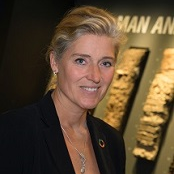Circular and Climate-Neutral Solutions: Biomass as the Base of Our Future Circular Society
A special issue of Sustainability (ISSN 2071-1050).
Deadline for manuscript submissions: closed (31 July 2022) | Viewed by 9532
Special Issue Editors
Interests: water and sediment connectivity; catchment processes; nature-based solutions; forest fire; sustainable land management
Special Issues, Collections and Topics in MDPI journals
Interests: water-climate-energy-food nexus; food security; biobased & circular economy themes; bioeconomy; agricultural policy reforms (CAP reform); (indirect) land use change; biobased policies (RED); forestry (REDD); trade liberalisation (WTO, impact on developing countries); climate change (adaptation and mitigation policies); technology at macro and micro level
Special Issues, Collections and Topics in MDPI journals
Interests: sustainable land use; climate-smart land use; data revolution; healthy soils; fair and functional land use; environmental performance; carbon capture in soils
Special Issues, Collections and Topics in MDPI journals
Special Issue Information
Dear Colleagues,
A transition towards a circular, biobased and climate-smart society is the answer to many of the societal challenges we are facing today. Circular systems in the green and blue domains will close water, nutrient and carbon cycles and, thereby, minimize resource losses and climate change effects, hence ensuring that society can live within the limits of the planet. Integrated circular systems will replace linear systems by making smart connections within and between terrestrial (plant- and animal-based) and marine production cycles and strengthen networks. ethink our food and biobased systems and the economy; think about new economic perspectives in a circular biobased society; and consider social organization and risk management in a circular biobased society and partnerships, to facilitate governance in transitions. This Special Issue aims to showcase how biomass will be the basis of our future circular society, and how circular and climate-neutral solutions provoke changes in the biosphere, economy and society.
Suggested topics:
We invite authors to submit papers addressing the following overall questions:
- How can we produce enough food and biomass for essential biobased products (clothes, plastics, construction materials, paper, etc.) while safeguarding our natural resources?
- How can we avoid losses and waste in our food and biobased systems?
- How do we ensure that these changes happen in a socially responsible manner, guarantee inclusivity and prevent the exclusion of groups?
- What new behavior is needed to make sure that the transition to a circular society also ensures climate restoration?
- How can biomass and bioproducts be best utilized and recycled for different purposes without introducing (new) risks to human health, and how can food safety risks be measured and assessed in a circular production system?
- Can an inclusive and sustainable economy be achieved with continuous economic growth, or do we need degrowth?
- Do we need a new economic framework that embeds inclusiveness and planetary boundaries in its core paradigm?
- How can the world market in a circular society including global and regional competition for biomass between food and non-food products be addressed?
- What are circular and climate-smart business models (including risk management)?
- How can governments innovate to facilitate a transition to a circular society – not only by applying traditional regulatory and policy incentives and restrictions but also by appreciating and facilitating societal factors and initiatives?
- How should the responsibilities for the governance of transitions between public and private actors, and between different layers (global to local) and different policy domains, be allocated?
- How should these policies and arrangements be monitored and evaluated?
Dr. Saskia Keesstra
Prof. Dr. Hans Van Meijl
Dr. Saskia Visser
Guest Editors
Manuscript Submission Information
Manuscripts should be submitted online at www.mdpi.com by registering and logging in to this website. Once you are registered, click here to go to the submission form. Manuscripts can be submitted until the deadline. All submissions that pass pre-check are peer-reviewed. Accepted papers will be published continuously in the journal (as soon as accepted) and will be listed together on the special issue website. Research articles, review articles as well as short communications are invited. For planned papers, a title and short abstract (about 100 words) can be sent to the Editorial Office for announcement on this website.
Submitted manuscripts should not have been published previously, nor be under consideration for publication elsewhere (except conference proceedings papers). All manuscripts are thoroughly refereed through a single-blind peer-review process. A guide for authors and other relevant information for submission of manuscripts is available on the Instructions for Authors page. Sustainability is an international peer-reviewed open access semimonthly journal published by MDPI.
Please visit the Instructions for Authors page before submitting a manuscript. The Article Processing Charge (APC) for publication in this open access journal is 2400 CHF (Swiss Francs). Submitted papers should be well formatted and use good English. Authors may use MDPI's English editing service prior to publication or during author revisions.
Keywords
- biosphere
- circular society
- circular economy
- soil
- competing claims on land
- SDGs
- biomass
- circular partnerships
- biobased products
- transitions






